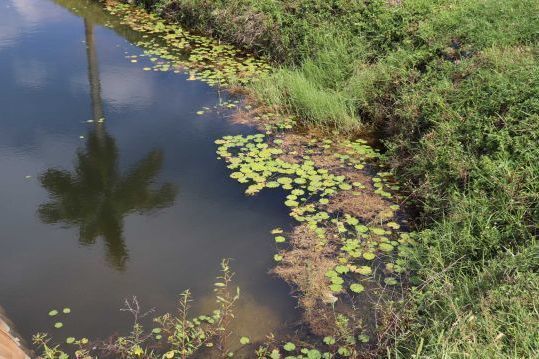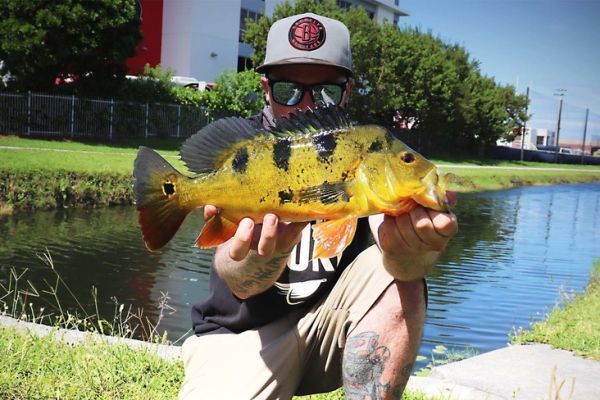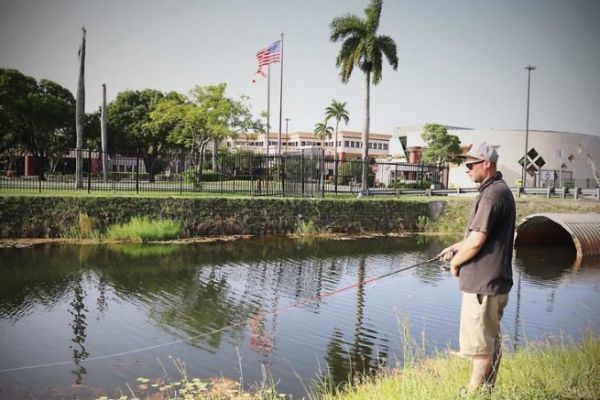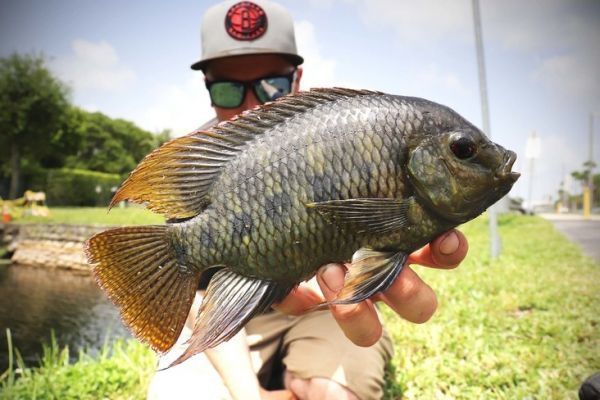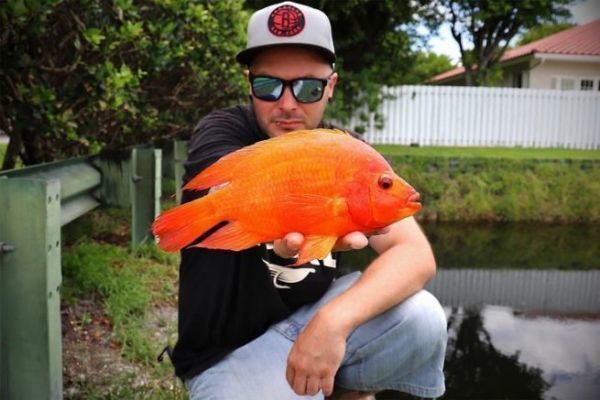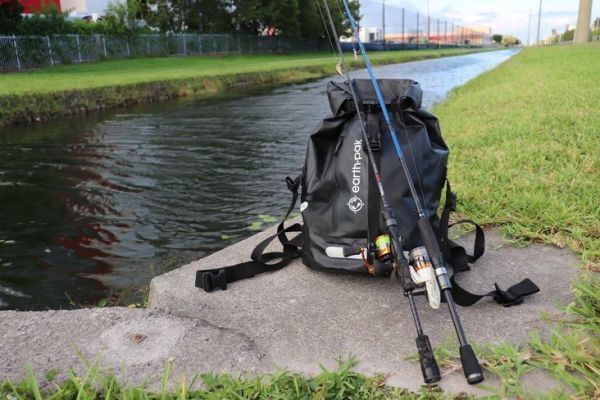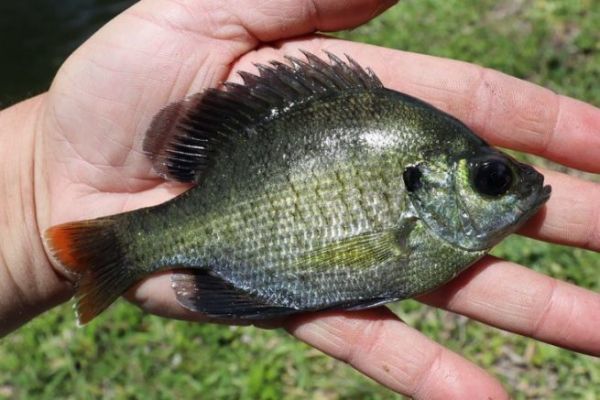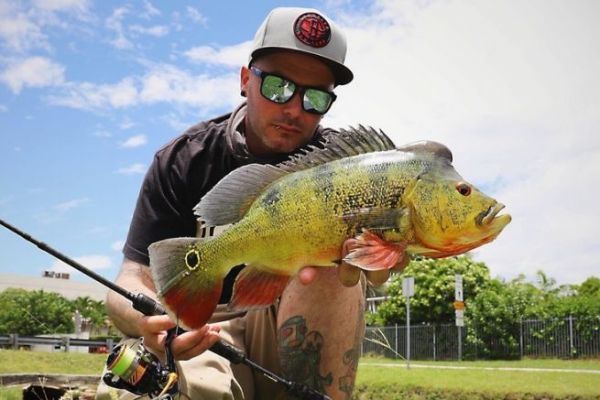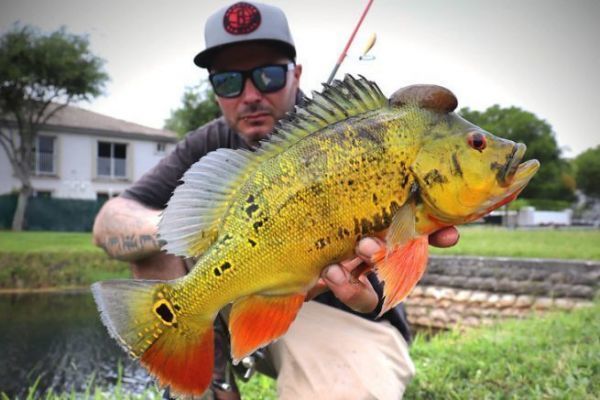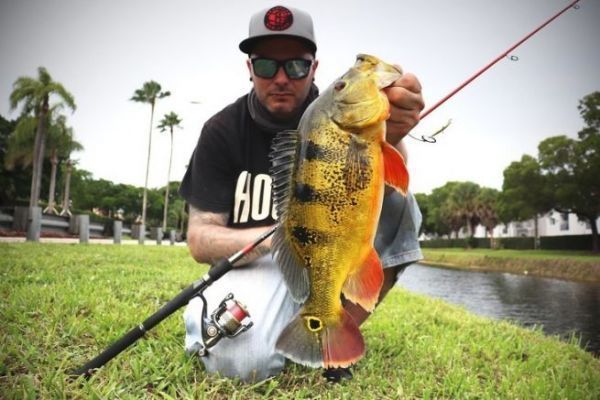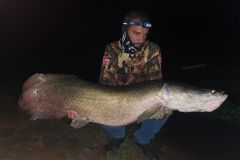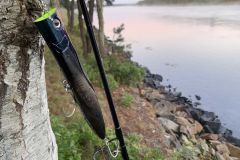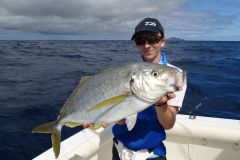Aspect
The peacock bass is a fish in a class of its own, and so easily recognizable that it hardly needs any introduction. In Florida, the species is the butterfly. It's not the biggest, but it's probably one of the most combative, as well as being beautiful, which is what makes it so sought-after and appreciated by sport fishermen.

Its yellow color and black-bass-like shape make it easy to identify. The distinction between male and female is also easy to make. The male has a larger head and a hump on it. There's also a bit of blue on his fins, and his color is generally darker than that of the female.
The female is often smaller and brighter yellow than the male.

Being able to street fish it in the heart of Miami, without having to travel to the depths of the Amazon, is a wonderful opportunity to come face to face with this species.
Origins
The peacock bass was voluntarily introduced in the mid-80s by the authorities to regulate other cichlid species, as it is their natural predator. In the early years, the introduction was a failure due to winters that were too cold for the species, which, it should be noted, is native to the Amazon basin.
Eventually, over the years, populations became acclimatized and today fishing for it is very popular. Although the species is listed as a non-native fish, it is protected by strict quotas and harvesting limits.
Distribution
Peacock bass are found mainly on Florida's southeast coast, between West Palm Beach and Florida City, as well as in the Everglades. The further south you go, the greater the chance of encountering larger fish and a larger population.

Indeed, this is a heat-loving species, so the closer you get to warmer areas, the more peacock-bass find their ideal conditions. In Florida, the largest documented specimens are around 9 pounds.
Handling
The peacock-bass has no teeth, so it can be handled like a black-bass or perch, by catching it by the mouth and holding it vertically, or horizontally by placing your second hand under its belly to support its weight.

 /
/ 

